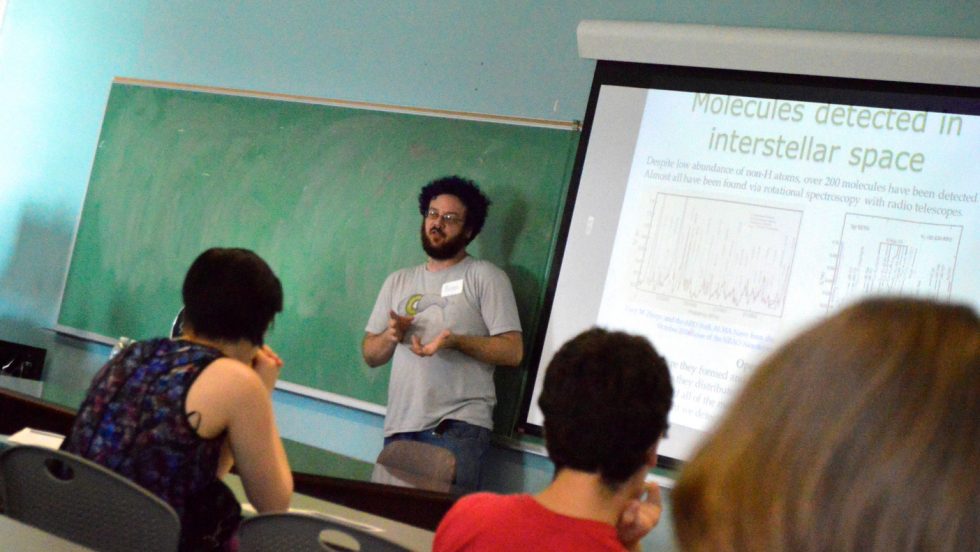Witnessing Students’s Growth

“I help them be more critical thinkers about scientific information. I hope I am teaching them not to be afraid of quantitative data and statistics. To be able to think about it: does this make numerical sense? How sure am I that the source is reliable? Once they leave, they will be bombarded by differing opinions, but I hope I’ve taught them how to be able to be critical and appropriately skeptical.”
Professor Shipman has been teaching courses, labs, and tutorials in physical chemistry at New College since 2008. They became the Leonard Florsheim Chair in 2015. Shipman received their B.A. from Rice University and earned their Ph.D. from the University of California-Berkeley. Prior to coming to New College, they did a post-doctorate at the University of Virginia.
In their lab, Professor Shipman and their students study how small molecules rotate and vibrate in the gas phase in very high resolution. This lets them acquire “molecular fingerprints” that can uniquely identify molecules in complicated mixtures. They primarily use these to trace the location and amount of various compounds in the interstellar medium, which provides clues about key processes in astrochemistry, such as the formation of interesting organic molecules from simple precursors in molecular clouds. In addition, they spend a fair amount of time on developing new instrumentation to collect this data more efficiently and developing software to automate the data analysis process. This allows students to spend more time thinking about the big scientific questions instead of working with giant lists of numbers.
As a small, public liberal arts college, New College and its faculty have the flexibility to create the courses students are interested in taking. “I have had a couple of students who are interested in interdisciplinary work. One declared her AOC in computational biochemistry and so we have to do a mix of applied math, biochemical and chemical work. It’s one of those combinations that is really interesting, really cutting edge. These are not established programs but because we have that flexibility, we can maneuver through it.”
Shipman notes the benefits of the all-encompassing holistic approach that they and their fellow professors are able to have with their students. “I had a student who started out in chemistry and is now applying to law school. Her thesis helped her crystallize what was important. We were looking at contaminants in eye shadows and tampons and the history of regulation around this. She realized the role the FDA had in making lives better. The beauty of it is that her thesis was about chemistry — about the specific molecules and how they might interact with the body — but it turned out the regulatory stuff grabbed her interest and now she’s going to law school!”
New College’s unique evaluation system may be more work for its professors but Professor Shipman says it’s worth it. “You can be much more nuanced and can really help students develop. With a letter grade system, I can have two people who are going to get a B, but they may have wildly different skills. Here at New College, I document how one did in all those major areas: here’s where they showed improvement over the semester, here are some study skills I noticed they may want to work on. It really contributes to their growth.”
Professor Shipman enjoys witnessing that growth. “I get to help students explore their boundaries. They also expand my range of interests as well. They’ll read some interesting paper and I’m like, ‘Oh, I haven’t seen that.’ They keep me current too. It’s wonderful!”
